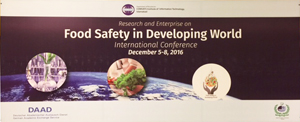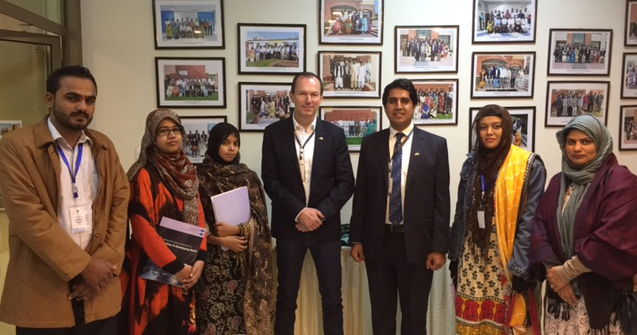RESEARCH AND ENTERPRISE ON FOOD SAFETY IN DEVELOPING WORLD
International Conference December 5--‐8, 2016
Department of Biosciences COMSATS Institute of Information Technology, Islamabad--‐Pakistan


Keynote Lecture Prof. Fischer: Systemic Strategies for Comprehensive Authenticity Control
Worldwide, food fraud most commonly affects goods such as olive oil, fish and organic foods, as well as commodities such as spices, tea, cocoa, coffee or nuts. Globally, revenue from counterfeit or adulterated raw materials and foods amounts to tens of billions of euros every year. This figure highlights the fact that the quality control strategies practiced to date are unequal to the problem. Compared to centuries past, contemporary challenges are therefore considerably more complicated and, due to the global material cycles now in place, include determining the commodity type (e.g. variety), identifying the exact geographical origin (e.g. to verify a product as a regionally-protected food) and distinguishing between specific types of production (ecological and sustainable vs. conventional agriculture).
To give the consumer peace of mind, more reliable strategies and solutions are required, capable of facilitating the unique characterization of raw materials. This process must also attend to the fact that many of our “modern-day fraudsters” also have a scientific background and a sound working knowledge of the methods used within corporate quality control or regulatory surveillance. As a consequence, product fakery can be modified and refined to an extent where detection becomes ever more problematic.
The talk gave an overview about state-of-the art approaches to experimentally cover the originality of food starting materials.
?


